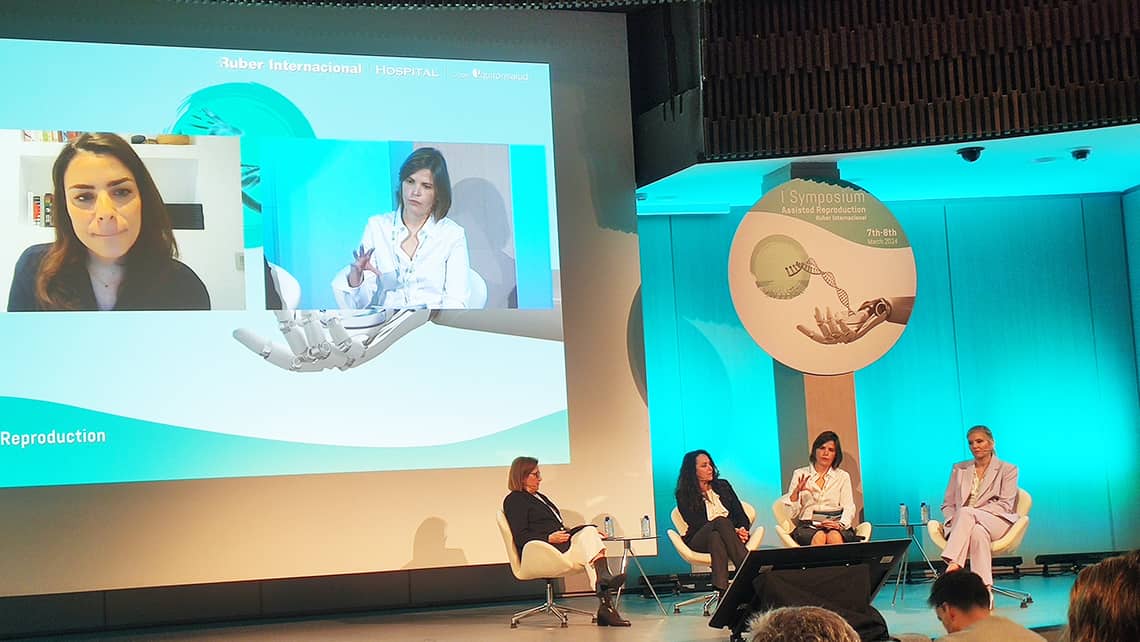Belén Lledó moderates a round table on pre-implantation genetic diagnosis and the potential of 1PN embryos.
14-03-2024

Within the framework of the 1st Assisted Reproduction Symposium organised by Ruber International clinic, Dr Belén Lledó, scientific director of Instituto Bernabeu Biotech, moderated, together with embryologist Amelia Villa, a round table focused on the latest innovations in pre-implantation genetic diagnosis (PGTA), with a particular focus on the potential of 1PN embryos, in which the prestigious researchers Mina Popovic, Francesca Spinella and Clare Ussher participated as speakers.
The event, which brought together experts and professionals in the field of reproductive medicine, we attended by Dr Lledó, as well as different members of the clinical and laboratory team of Instituto Bernabeu.
The debate was stablished around mosaic embryos, i.e. embryos with a mixture of chromosomally normal and abnormal cells. According to previous studies, an estimated of 20% of human embryos have chromosomal mosaicism, a condition that can make it difficult to select healthy embryos for transfer. “We need to continue collecting data and monitoring children born after mosaic embryo transfer to be able to assess their impact,” said Dr Belén Lledó, although “everything suggests that low-grade mosaic embryos are the ones that provide the best results”.
Another topic discussed in the round table was 1PN embryos, zygotes that have a prevalence of 5% and in which only 1 pronucleus is observed after fertilization. Until now, they were discarded for implantation is assisted reproduction processes, but “after performing the PGT-A, together with an analysis of biparentality, this type of embryos could be transferred, thus increasing the percentage of viable embryos for patients,” Dr Lledó pointed out.
